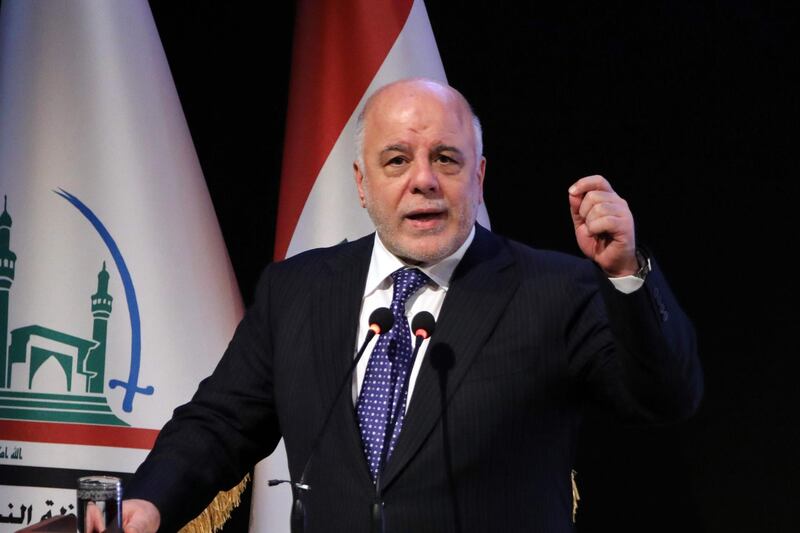Iraq's war against ISIL ended a month ago but as the carnage in Baghdad on Monday demonstrated, peace continues to elude the Iraqi people. The twin suicide bombings in Tayyaran Square – coming on the heels of a suicide bombing on Saturday that killed five people at a checkpoint in Baghdad – constituted the first major attack in the capital since the Iraqi military drove out ISIL in December. It claimed the lives of more than two dozen people, among them workers looking for shifts. A city that was beginning to hope and to dream of rebuilding, and whose inhabitants were gradually resuming the lives that had been disrupted for so long, was once again plunged into grief and mourning. ISIL as an organisation might be dead but, as this newspaper has previously pointed out, its fighters will continue to pose a threat.
That the bloodshed in Baghdad was accompanied by uncertainty over the political coalition forged by Iraq’s prime minister Haider Al Abadi on Saturday can only have deepened the unease that washes over the country. Mr Al Abadi, laying the groundwork for May’s general elections, had formed a bloc that worried many because of its inclusion of militant organisations, including Asaib Ahl Al Haq, considered a terror group by the US.
__________________
Read more
[ Iraq: Abadi’s electoral alliance collapses after just one day ]
[ Iraqi militias form of one of the biggest political coalitions for elections ]
[ Thirty-eight killed and more than 100 wounded in twin Baghdad bombings ]
__________________
It is difficult, however, to reconcile such a belief with the fact that the Victory Alliance sought to co-opt into its fold representatives of militias backed by Iran, a power whose objective is the subversion of Iraqi sovereignty. The inclusion in the coalition of Hadi Al Ameri, the leader of the Badr organisation and a commander in the Iran-backed Popular Mobilisation Units that aided the war effort against ISIL, was profoundly unhelpful because it threatened to undermine Mr Al Abadi's ban on militia leaders seeking political office. At the same time, the disintegration of this flawed coalition within a day of its formation throws into sharp relief the formidable challenges that face Iraq as it seeks to rise from a decade of unrest and inch its way towards stability.
It is a stark reminder that Iraq's hard-won recent gains are at risk of dissolving if they are not protected and built upon with a long-term political strategy that is both inclusive and capable of inspiring trust. Permitting militias with allegiance to Iran to permeate the political arena is perhaps not the best route to achieving stability. Last year was a watershed in Iraq's modern history. A great deal of blood was spilled and a great many sacrifices were made by men, women and children of multiple communities to vanquish ISIL. In that fight, they were all Iraqis, their affection and pride for their land transcending any other divisions. The unity of purpose that animated the country in 2017 is needed now more than ever as Iraqis seek to heal and rebuild their country.
Follow The National's Opinion section on Twitter





